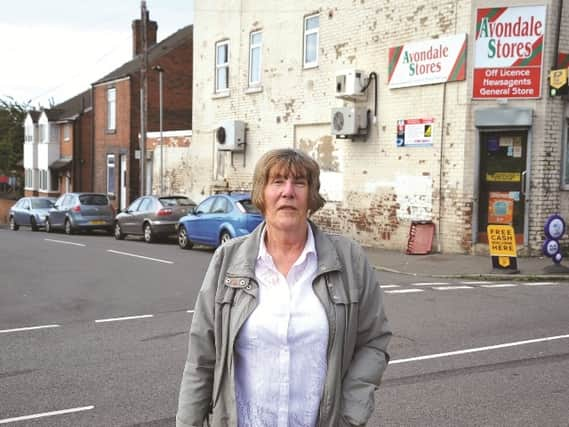Council licenses have knocked £25k off my house, says Masbrough landlady


The policy sees owners in the private rented sector pay RMBC £592 per property for five years with the aim of cutting turnover and improving living conditions.
Landlady Maureen Johnson (71) said her row of four semi-detached homes on Mount Street, Masbrough, have dropped in value from £100,000 to £75,000 since the project began.
Advertisement
Hide AdAdvertisement
Hide AdAnd she was stunned to see other areas being removed from needing licences while she faces paying out again in the spring.
Maureen, of Hooton Levitt, said: “I’m absolutely disgusted. I had these houses specially made when I retired.
“The properties were only 14 years old when selective licensing came in. I expected them to say:
‘No, yours don’t need to be in it’.
“Now they’ve decided to take some streets off but mine are still in it. They said it’s because they’ve complied. I said: ‘I beg your pardon!’
Advertisement
Hide AdAdvertisement
Hide Ad“I’ve been renting out premises since just before 1990. They’re trying to teach a granny how to suck eggs.
“I know this area, and it’s not fair for the Dinnington streets to be taken out of the scheme but not ours, just because they want to add Parkgate and Thurcroft.”
A cap on the amount of properties allowed in the scheme means Rotherham Borough Council needs to remove some of the houses currently included across Maltby, Dinnington, Masbrough and Eastwood.
The council claimed selective licensing had led to rising house prices and rents when it opened new consultation this summer.
Advertisement
Hide AdAdvertisement
Hide AdIt later backed down on the claim but said it held information showing rises but could not prove this was linked to the licences.
“It’s not putting property prices up,” said Maureen, who ran the Avondale corner shop for more than 40 years.
“Who wants to be buying in these areas as an investment and have to fork out all that money?
“When I paid for the first five years, I took the knock. The money came out of the renewals money I was saving to do kitchens and bathrooms. But this time I’m going to have to put rents up.”
Advertisement
Hide AdAdvertisement
Hide AdMaureen said she had fixed the minor points which selective licensing had flagged, which included deals around a window and window safety catches.
And she added: “Just how many bad landlords has this helped them to find? What’s happening is the good landlords are paying for the council to find the bad landlords.”
Rotherham council’s assistant director for regeneration and environment, community safety and street scene, Tom Smith, said: “Although we know that the majority of Rotherham’s landlords are good, unfortunately a minority are not.
“Selective Licensing has delivered improvements to landlord management practices and to housing quality in the areas that need it the most. This has benefited the wider community as well as tenants themselves.
Advertisement
Hide AdAdvertisement
Hide Ad“When the scheme began, only one in ten properties inspected met minimum legal standards. Following intervention, 94 per cent of properties are now judged as in good condition.
"However, there are still ongoing challenges faced in those selected licensing areas, and by assessing those we have changed the areas proposed, taking some properties out but bringing some others in.
“The income raised from licence fees has been re-invested in the selective licences areas, with no profit being made, with the vast majority being spent on employing additional, specialist officers to work with landlords and tenants in the areas.”